Methamphetamine contamination in buildings has become a growing concern, particularly in residential properties. Whether due to illegal manufacturing (meth labs) or smoking methamphetamine inside a property, the presence of this substance can pose significant health risks and financial burdens to homeowners, buyers, landlords, and tenants. Here’s what you need to know about the risks of methamphetamine contamination and how to address them.
1. How Does Methamphetamine Contaminate Buildings?
Methamphetamine contamination occurs in two main ways:
- Manufacturing: Properties used as clandestine meth labs become highly contaminated due to the toxic chemicals used in production.
- Smoking Meth: Even smoking methamphetamine indoors can leave residue on walls, ceilings, carpets, and ventilation systems.
These residues may remain in the building materials for years if not properly treated, causing long-term exposure risks.
2. Health Risks of Meth Contamination
Exposure to methamphetamine residues can result in serious health issues, particularly for vulnerable individuals such as children, the elderly, and those with pre-existing conditions. Common health risks include:
- Respiratory Problems: Difficulty breathing, chronic coughing, and lung irritation.
- Skin and Eye Irritation: Rashes, itching, and red, watery eyes.
- Neurological Effects: Headaches, dizziness, and behavioral changes, especially in children.
- Long-Term Effects: Prolonged exposure may lead to organ damage, developmental issues, and immune system complications.
3. Risks to Property Value
Meth contamination can significantly reduce a property’s value. If the contamination is discovered after purchase, it can lead to:
- Decreased Resale Value: Buyers may avoid properties with a history of contamination, even after remediation.
- High Cleanup Costs: Professional decontamination services can cost thousands of dollars, depending on the severity of contamination.
- Legal and Insurance Issues: Some insurance policies may exclude meth-related damage, leaving property owners to cover cleanup costs themselves.
4. Signs of Methamphetamine Contamination
While meth contamination may not always be obvious, here are some signs to watch for:
- Strong chemical odors, similar to ammonia or solvents.
- Yellowing of walls, ceilings, or appliances.
- Stains or discoloration near sinks, drains, or ventilation systems.
- Suspicious materials left behind, such as chemical containers or unusual equipment.
5. Meth Testing: When and Why
Testing for methamphetamine contamination is crucial if:
- The property has a history of illegal drug activity.
- You’re purchasing a property in an area with a known meth problem.
- You notice signs of potential contamination.
- The property has been rented out, especially to unknown tenants.
Professional testing can confirm the presence of meth residues and their levels, helping you decide on remediation steps or renegotiate a property sale.
6. Remediation and Cleanup
If a property is confirmed to be contaminated, the cleanup process may involve:
- Professional Decontamination: Experts use specialized techniques to clean and remove residues from walls, floors, and ventilation systems.
- Replacing Materials: In severe cases, contaminated building materials like drywall, insulation, or carpets may need to be replaced.
- Testing Post-Cleanup: Follow-up testing ensures the property meets safe living standards after remediation.
7. How to Protect Yourself as a Buyer or Landlord
- Get a Meth Test Before Purchase: Include meth testing as part of your pre-purchase building inspection.
- Screen Tenants Thoroughly: Landlords should screen tenants to reduce the risk of illegal drug use on the property.
- Understand Local Regulations: Familiarize yourself with laws regarding meth contamination disclosure in your area.
8. Conclusion
Methamphetamine contamination is a serious issue that can affect your health, finances, and property value. Awareness and proactive measures, such as testing and remediation, are critical to mitigating risks.
If you’re buying, renting, or managing a property, consider adding meth testing to your due diligence process. For professional building inspection services, including meth testing in Northland, Auckland, Wellington and Christchurch, contact us today. Protect your investment and ensure a safe environment for you and your family.

